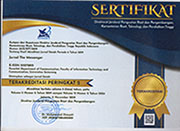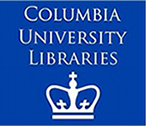Freedom of Expression in Regulatory Pressure: Case Study on the Electronic Information and Transaction Law
Abstract
Methods: Qualitative research was conducted, employing a case study approach, utilizing literature studies and analyzing articles related to the EIT Law and freedom of expression violations.
Findings: The study identified 371 instances where the EIT Law was used to prosecute individuals, often those exposing criminal activity online, highlighting a concerning trend of criminalizing victims. Articles 27, 28, and 29 were particularly problematic due to their ambiguity, creating opportunities to suppress online discourse. This analysis revealed a concerning pattern of the EIT Law being used to restrict digital freedom of expression and public participation, aligning with Althusser's (1970) concept of a repressive state apparatus. The research identified the government, entrepreneurs, and the police as the primary actors utilizing the EIT Law, often to the detriment of civil society members, reflecting the concept of hegemony. This study recommends further research into the EIT Law's impact on digital freedom of expression, focusing on the legislative process, the experiences of those affected by the law, and comparative analyses with other countries. Investigating the evolving landscape of digital rights about state control and corporate.
Originality: This manuscript addressed a significant gap in existing literature by providing an in-depth analysis of the practical implications of Indonesia's Information and Electronic Transactions (ITE) Law on digital freedom of expression.
Keywords
References
Akdeniz, Y. (2001). UK Government and the control of Internet content. In Computer Law and Security Report (Vol. 17, Issue 5). https://doi.org/10.1016/S0267-3649(01)00505-2
Alcalde-Unzu, J., Ballester, M. A., & Nieto, J. (2012). Freedom of choice: John Stuart Mill and the tree of life. SERIEs, 3(1–2). https://doi.org/10.1007/s13209-011-0053-8
Boswell, J., & Corbett, J. (2021). Democracy, interpretation, and the “problem” of conceptual ambiguity: Reflections on the v-dem project’s struggles with operationalizing deliberative democracy. Polity, 53(2), 239–263. https://doi.org/10.1086/713173
Conti, G. (2023). Charles Dupont-White: An idiosyncratic nineteenth-century theorist on speech, state, and John Stuart Mill. Global Intellectual History, 8(1). https://doi.org/10.1080/23801883.2021.1956162
Dahl, R. A. (2000). On Democracy (1st ed.). Yale University Press.
Dahl, R. A. (2001). Perihal Demokrasi, Menjelajahi Teori dan Praktek Demokrasi Secara Singkat (R. Zainuddin, Trans.). Yayasan Obor Indonesia.
Denzin, N. K., & Lincoln, Y. S. (1994). Handbook of Qualitative Research. SAGE Publication Inc.
Deursen, V. (2022). Penggunaan Internet sebagai Media Pembelajaran The Internet Usage as Medium of E-Learning. Jurnal Publish, 1(1).
El Kadoussi, A., Zaid, B., & Ibahrine, M. (2021). Traditional media, digital platforms and social protests in post-Arab Spring Morocco. Orient, 62(1), 50–59.
Fallows, D. (2008, March 27). Most Chinese say they approve of government Internet control. https://www.markle.org/wp-content/uploads/2022/03/pip_china_internet_2008_0.pdf
Freuler, O. J. (2023). The weaponization of private corporate infrastructure: Internet fragmentation and coercive diplomacy in the 21st century. Global Media and China, 8(1). https://doi.org/10.1177/20594364221139729
Giacomello, G. (2008). National Governments and Control of the Internet: A Digital Challenge. In Routledge (1st ed.). Routledge. https://doi.org/10.4324/9780203329856
Hammond, M. (2019). Deliberative democracy as a critical theory. Critical Review of International Social and Political Philosophy, 22(7), 787–808. https://doi.org/10.1080/13698230.2018.1438333
Hammond, M. (2020). Sustainability as a cultural transformation: the role of deliberative democracy. Environmental Politics, 29(1), 173–192. https://doi.org/10.1080/09644016.2019.1684731
Hantrais, L., & Lenihan, A. T. (2021). Social dimensions of evidence-based policy in a digital society. Contemporary Social Science, 16(2). https://doi.org/10.1080/21582041.2021.1887508
Hartz-Karp, J., & Marinova, D. (2021). Using Deliberative Democracy for Better Urban Decision-Making through Integrative Thinking. Urban Science, 5(1). https://doi.org/10.3390/urbansci5010003
Hidayat, T., & Mahardiko, R. (2020). The effect of social media regulatory content law in Indonesia. Journal of Telecommunications and the Digital Economy, 8(2), 110–122. https://doi.org/10.18080/jtde.v8n2.247
Hosein, G. (2000). Logical Propositions on Free Expression, Regulation, Technology, and Privacy. Media Asia, 27(2). https://doi.org/10.1080/01296612.2000.11771949
Hurtíková, H., & Soukop, M. (2019). Participative and deliberative democracy on the local level: How the political characteristics of municipalities in the czech republic relate to the use of selected democratic innovation within their territory? Lex Localis, 17(2), 369–393. https://doi.org/10.4335/17.2.369-393(2019)
Janković, I. (2022). Deliberative Democracy – Theory and Practice: The Belgrade Citizens' Assembly case. Filozofija i Drustvo, 33(1). https://doi.org/10.2298/FID2201026J
Jayadi, A. (2017). What constitutes as limitation of (Human) rights in indonesian legal context? Hasanuddin Law Review, 3(3), 290–306. https://doi.org/10.20956/halrev.v3i3.1203
Jones, S. R. (1999). Membelenggu Kebebasan dasar: Potret Tiga Kebebasan Dasar di Asia. ELSAM.
Keating, A., & Melis, G. (2017). Social media and youth political engagement: Preaching to the converted or providing a new voice for youth? British Journal of Politics and International Relations, 19(4), 877–894. https://doi.org/10.1177/1369148117718461
Kettemann, M. C., & Benedek, W. (2019). Freedom of expression online. In Human Rights, Digital Society and the Law: A Research Companion. https://doi.org/10.4324/9781351025386-5
Khallaf Jallab, A., Hameed, T., & Abed Al-Isawi, M. J. (2023). The Role of Social Media in Spreading the Holy Qur’an. KnE Social Sciences. https://doi.org/10.18502/kss.v8i6.13154
Kramer, M. H. (2022). Freedom of expression as self-restraint. Philosophy and Social Criticism, 48(4). https://doi.org/10.1177/01914537211072885
Lewar, P. P., & Ndegong Madung, O. G. (2022). Demokrasi Sebagai Diskursus dan Deliberasi Menurut Jűrgen Habermas. Jurnal Ledalero, 21(2). https://doi.org/10.31385/jl.v21i2.315.150-161
Lu, J., Liu, Z., & Jin, J. (2022). The Internet, populism, and deliberative democracy: A panel study of 167 countries from 2000 to 2018. Profesional de La Informacion, 31(3). https://doi.org/10.3145/epi.2022.may.02
Lu, J., & Zhao, Y. (2018). Implicit and Explicit Control: Modelling the Effect of Internet Censorship on Political Protest in China. International Journal of Communication, 12, 3294–3316.
Mariano, D., Yeoh, B. S. A., & Cheng, Y. (2017). Crossing boundaries of state and religious power: Reproductive mobilities in Singapore. Asia Pacific Viewpoint, 58(2), 203–215. https://doi.org/10.1111/apv.12163
Matsui, S. (2022). New Media and Freedom of Expression: Rethinking the Constitutional Foundations of the Public Sphere. The American Journal of Comparative Law, 70(1). https://doi.org/10.1093/ajcl/avac028
Mehrotra, A. (2021). Access to internet as a human right -justification and comparative study. Comparative Law Review, 27. https://doi.org/10.12775/CLR.2021.013
Menon, S., Hartz-Karp, J., & Marinova, D. (2021). Can Deliberative Democracy Work in Urban India? Urban Science, 5(2). https://doi.org/10.3390/urbansci5020039
Miles, M. B., & Huberman, A. M. (1994). Qualitative Data Analysis (2nd ed.). Sage Publications, Inc.
Momen, M. N. (2020). Myth and Reality of Freedom of Expression on the Internet. In International Journal of Public Administration (Vol. 43, Issue 3). https://doi.org/10.1080/01900692.2019.1628055
Mundt, M. D. (2019). Participatory Deliberative Democracy for Peace in El Salvador. Journal of Public Deliberation, 15(3). https://doi.org/10.16997/jdd.346
Muttaqien, M. E. (2023). Konsep komunikasi Jürgen Habermas dalam Ide Demokrasi Deliberatif dan Tindakan Komunikatif (Jürgen Habermas’s Concept of Communication in the Idea of Deliberative Democracy and Communicative Action). Ilmu Komunikasi, 6(1).
Neuman, W. L. (2014). Social Research Methods: Qualitative and Quantitative Approaches (7th ed.). Pearson Education Limited.
Nisa, E. F. (2019). Muslim Women in Contemporary Indonesia: Online Conflicting Narratives behind the Women Ulama Congress. Asian Studies Review, 43(3), 434–454. https://doi.org/10.1080/10357823.2019.1632796
Nurianto, H. (2020). Impact analysis of information and electronic transactions law (Law Number 19 Year 2016) on the level of cyber-crime in social media. International Journal of Innovation, Creativity and Change, 12(8), 485–500. https://www.scopus.com/inward/record.uri?eid=2-s2.0-85084422650&partnerID=40&md5=b14f04770d0a930b50f4fb2c073dd9f1
Nyoman Juwita Arsawati, I., Made Wirya Darma, I., & Antari, P. E. D. (2021). A criminological outlook of cyber crimes in sexual violence against children in Indonesian Laws. International Journal of Criminology and Sociology, 10, 219–223. https://doi.org/10.6000/1929-4409.2021.10.26
Olaniyan, A., & Akpojivi, U. (2021). Transforming communication, social media, counter-hegemony and the struggle for the soul of Nigeria. Information Communication and Society, 24(3), 422–437. https://doi.org/10.1080/1369118X.2020.1804983
Permadi, S. S. (2017). Politik hukum terhadap ketentuan pasal 27 ayat (3) UU No 2008 tentang Informasi dan Transaksi Elektronik (Legal policy on the provisions of article 27 paragraph (3) of Law No. 11 of 2008 concerning Electronic Information and Transactions). Universitas Islam Indonesia.
Pohan, S. (2018). The right to be forgotten in public domain arrangements in social media in Indonesia. International Journal of Scientific and Technology Research, 7(8), 200–203. https://www.scopus.com/inward/record.uri?eid=2-s2.0-85059897194&partnerID=40&md5=9aca09b5e3dc05cce705cd06ab9329c2
Prahassacitta, V., & Harkrisnowo, H. (2021). Criminal disinformation in relation to the freedom of expression in Indonesia: A critical study. Comparative Law Review, 27, 135–165. https://doi.org/10.12775/CLR.2021.005
Putri, S. G., Irianto, E., & An, D. P. (2019). Law Enforcement of Criminal Defamation Through Electronic Media. Lentera Hukum, 6(2), 267–278. https://doi.org/10.19184/ejlh.v6i2.8033
Qi, M., & Wang, J. (2021). Using the Internet of Things E-Government Platform to Optimize the Administrative Management Mode. Wireless Communications and Mobile Computing, 2021. https://doi.org/10.1155/2021/2224957
Ramadhan, Y. S., & Munandar, A. I. (2021). Policy Analysis of Restriction of Internet Access in The Region of Papua in 2019 in A National Security Perspective. JKMP (Jurnal Kebijakan Dan Manajemen Publik), 9(1). https://doi.org/10.21070/jkmp.v9i1.1566
Ratnasari, E., Sumartias, S., & Romli, R. (2021). Social Media, Digital Activism, and Online Gender-Based Violence in Indonesia. Nyimak: Journal of Communication, 5(1). https://doi.org/10.31000/nyimak.v5i1.3218
Reglitz, M. (2020). The Human Right to Free Internet Access. Journal of Applied Philosophy, 37(2). https://doi.org/10.1111/japp.12395
Reglitz, M. (2023). The socio-economic argument for the human right to internet access. Politics, Philosophy and Economics. https://doi.org/10.1177/1470594X231167597
Rustandi, R. (2020). Cyberdakwah: Internet sebagai media baru dalam sistem komunikasi dakwah Islam (Cyberdakwah: The Internet as a New Medium in the Islamic communication system). NALAR: Jurnal Peradaban Dan Pemikiran Islam, 3(2). https://doi.org/10.23971/njppi.v3i2.1678
Segura, M. S., & Bizberge, A. (2021). Digital Rights During the Covid-19 Pandemic in Latin America. Comunicacao e Sociedade, 39, 119–144. https://doi.org/10.17231/comsoc.39(2021).2852
Shahbaz, A., & Funk, A. (2021). Freedom on the Net 2021: The Global Drive to Control Big Tech | Freedom House. Freedom House.
Sherstoboeva, E. (2019). Audiovisual regulation in Russia in the context of council of Europe standards. In Review of Central and East European Law (Vol. 44, Issue 3). https://doi.org/10.1163/15730352-04403006
Singh, S. (2017). Internet shaping freedom of expression; freedom shaping regulation. Media Watch, 8(2), 157–176. https://doi.org/10.15655/mw/2017/v8i2/49014
Šramel, B., & Horváth, P. (2021). Internet as the communication medium of the 21st century: Do we need a special legal regulation of freedom of expression on the internet? Lawyer Quarterly, 11(1), 141–157. https://www.scopus.com/inward/record.uri?eid=2-s2.0-85102997683&partnerID=40&md5=9a69e131da609a9ab7f5bc6d8aff55a4
Susanti, D. I. (2023). Contextualizing Mill’s Idea on Freedom of Expression in The Indonesian Law on Prohibition of Hate Speech. Advances in Social Sciences Research Journal, 10(6). https://doi.org/10.14738/assrj.106.14859
Syamsiyatun, S. (2007). Muslim Women’s Politics in Advancing Their Gender Interests: A Case-Study of Nasyiatul Aisyiyah in Indonesia New Order Era. Al-Jami’ah: Journal of Islamic Studies, 45(1). https://doi.org/10.14421/ajis.2007.451.57-89
Tsui, L. (2003). The panopticon as the antithesis of a space of freedom: Control and Regulation of the Internet in China. China Information, 17(2). https://doi.org/10.1177/0920203X0301700203
Valentini, C. (2021). Deliberative democracy, social rights and the modulation of judicial review. Revista Derecho Del Estado, 49. https://doi.org/10.18601/01229893.N49.10
Villa, A. E., & Gonsalez, W. C. (2022). The Deliberative Democracy of Jürgen Habermas. Revista de Filosofia (Venezuela), 39(Especial). https://doi.org/10.5281/zenodo.6426480
Voitsikhovskyi, A., Bakumov, O., Ustymenko, O., & Syroid, T. (2021). The access to the internet is a fundamental human right given the development of global information society. Revista de Direito, Estado e Telecomunicacoes, 13(1). https://doi.org/10.26512/lstr.v13i1.30904
Zalnieriute, M., & Milan, S. (2019). Internet Architecture and Human Rights: Beyond the Human Rights Gap. In Policy and Internet (Vol. 11, Issue 1). https://doi.org/10.1002/poi3.200
Zgiep, M. (2019). Beyond institutions and the system: Network approach to deliberative democracy. Cogent Social Sciences, 5(1). https://doi.org/10.1080/23311886.2019.1639876
Zhuravskaya, E., Petrova, M., & Enikolopov, R. (2020). Political effects of the internet and social media. In Annual Review of Economics (Vol. 12). https://doi.org/10.1146/annurev-economics-081919-050239
DOI: http://dx.doi.org/10.26623/themessenger.v15i1.5787
Refbacks
- There are currently no refbacks.
Copyright (c) 2023 Jurnal The Messenger
View My Stats [Jurnal The Messenger] is an International Scientific Journal, Published by the Department of Communication, Faculty of Information Technology and Communication, Universitas Semarang (Central Java, Indonesia). It is licensed under a Creative Commons Attribution 4.0 International License.



_11.jpg)




_BARCODE.jpg)
_BARCODE1.jpg)


5.png)










2.png)





